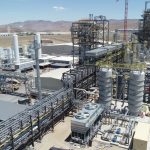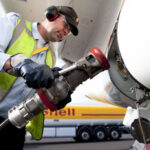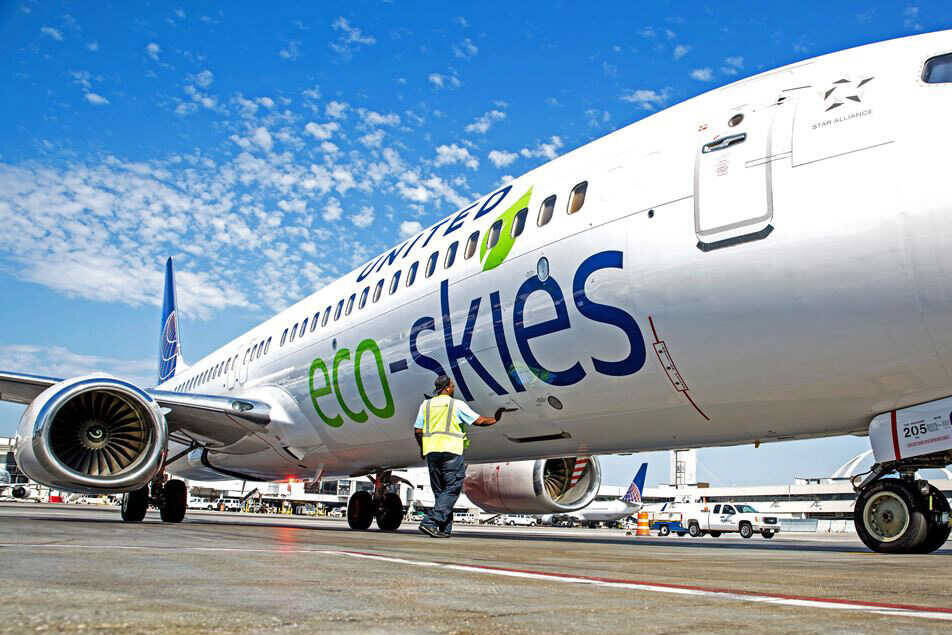The United Airlines Ventures Sustainable Flight Fund, which was launched five months ago with more than $100 million in investments from United and five partners, has increased in size to $200 million with the addition of eight new partners: American Express Global Business Travel, Aramco Ventures, Aviation Capital Group, Bank of America, Boston Consulting Group, Groupe ADP, Hawaiian Airlines and JetBlue Ventures. The fund is a way for companies and consumers to come together and increase the supply of sustainable aviation fuel through the support of startups. The new corporate members join inaugural partners Air Canada, Boeing, GE Aerospace, JPMorgan Chase and Honeywell. United’s customers also have the option to contribute to supplement the airline’s investment in the fund when they book flights and since the fund launched, more than 60,000 customers have contributed over $200,000. To date, United has invested in the future production of over five billion gallons of SAF – the most of any airline in the world, it says, with existing investments moved into the new fund.
“While United can’t decarbonise the airline industry alone, we can use our leadership and credibility in this space to rally other to join us,” said Michael Leskinen, President of United Airlines Ventures, with the airline saying it will continue to recruit corporations across industries to join the fund and will prioritise investment in new technology, advanced fuel sources and proven producers in order to help scale the supply of SAF. Partners also have the potential to gain preferential access to environmental attributes associated with United’s future supply of SAF.
“As companies across the globe are increasingly looking for ways to reduce their environmental impact from flying, the UAV Sustainable Flight Fund presents a unique opportunity,” Leskinen added. “Instead of fighting over the current limited supply of SAF, with our partners, we’re working collaboratively to help scale the SAF industry itself, and to get an equity stake in groundbreaking technology while doing it.”
Through the fund, United intends to invest in a variety of SAF feedstocks and technologies. In the past two years, UAV has made investments in or signed purchase agreements with companies using a variety of ingredients and technologies to produce SAF, including feedstocks like ethanol, animal byproducts, forestry and crop waste, and municipal waste. This is in addition to early-stage, promising technologies such as synthetic biology and power-to-liquids, incorporating renewable power, hydrogen and carbon capture processes.
SAF companies to date receiving investment from UAV include Alder Fuels, Cemvita, Dimensional Energy, Fulcrum BioEnergy, Next Renewable Fuels, Svante and Viridos.
Following an investment in sodium-ion battery-maker Natron Energy, UAV this month announced another electric battery investment, this time with Electric Power Systems, a company producing battery technology that can potentially be used for a broad suite of aerospace applications. Rather than producing battery cells, the company says its compatible module technology can be adapted to support a variety of batteries, that could allow United to consider its modules for a number of near-term applications. EPS aims to provide a whole battery ‘ecosystem’ for aviation, from the packs on aircraft to charging stations on the ground.
United is exploring options to move its pilot training academy, Aviate, away from internal combustion-powered training aircraft to electric ones. EPS says its powertrain could serve as the core propulsion system for a family of future electric aircraft concepts, starting with an electric trainer and scaling to larger variants as technology advances. Additionally, United has more than 12,000 pieces of motorised ground equipment across its operations, of which about one third are currently electric, and EPS’s battery modules could potentially be deployed in support of several uses.
Photo: United Airlines














More News & Features
SAF One announces new investment and technology partners for Middle East SAF project
New initiative formed to accelerate SAF adoption and production in the Pacific Northwest
EcoCeres opens new Malaysia production facility as SAF ambition in Asia scales up
Aviation, shipping and fuel leaders convene in Rotterdam to accelerate sustainable fuels scale-up
EU SAF mandates will have to be revised, predicts French oil chief
Lessons learned from the collapse of Fulcrum BioEnergy